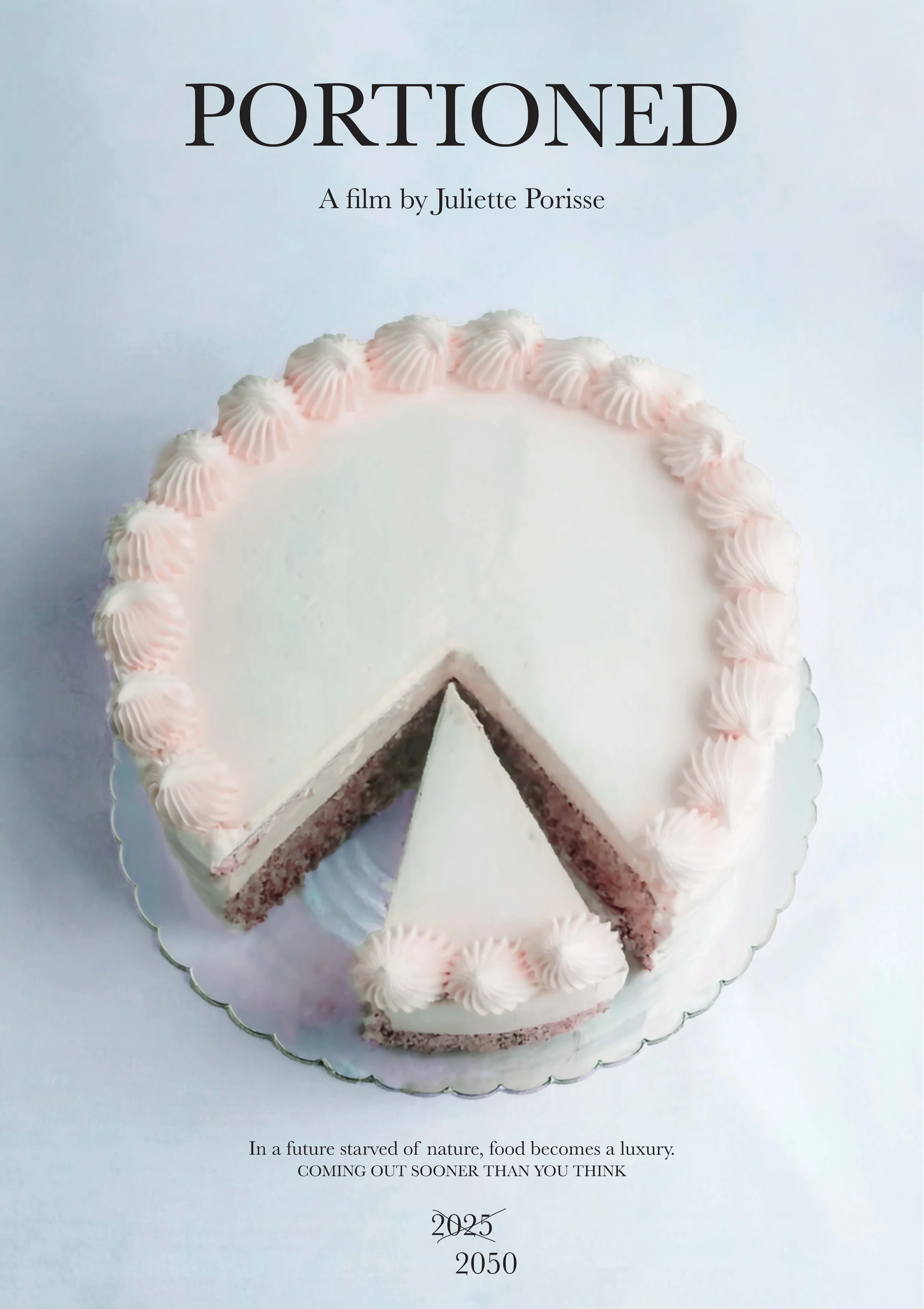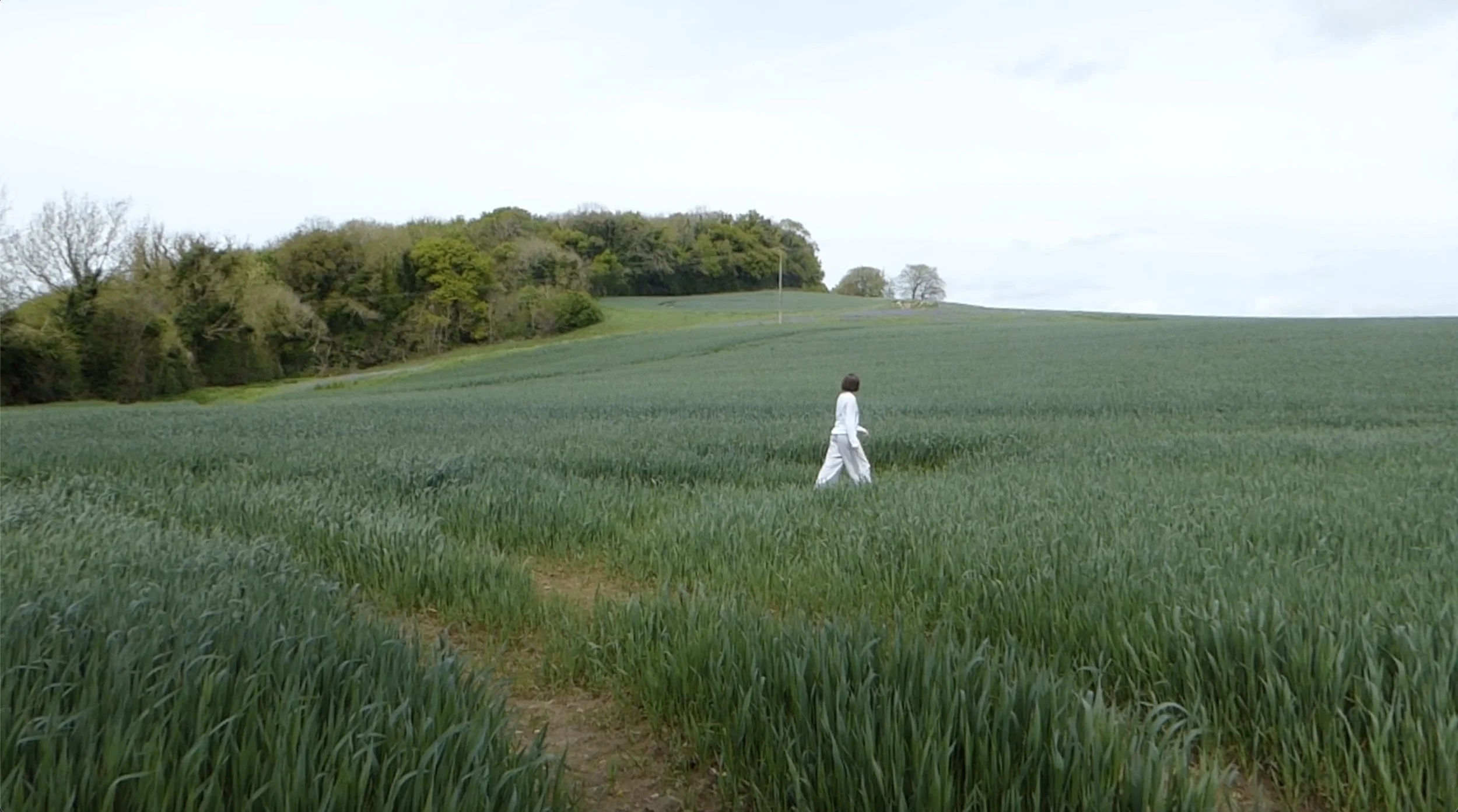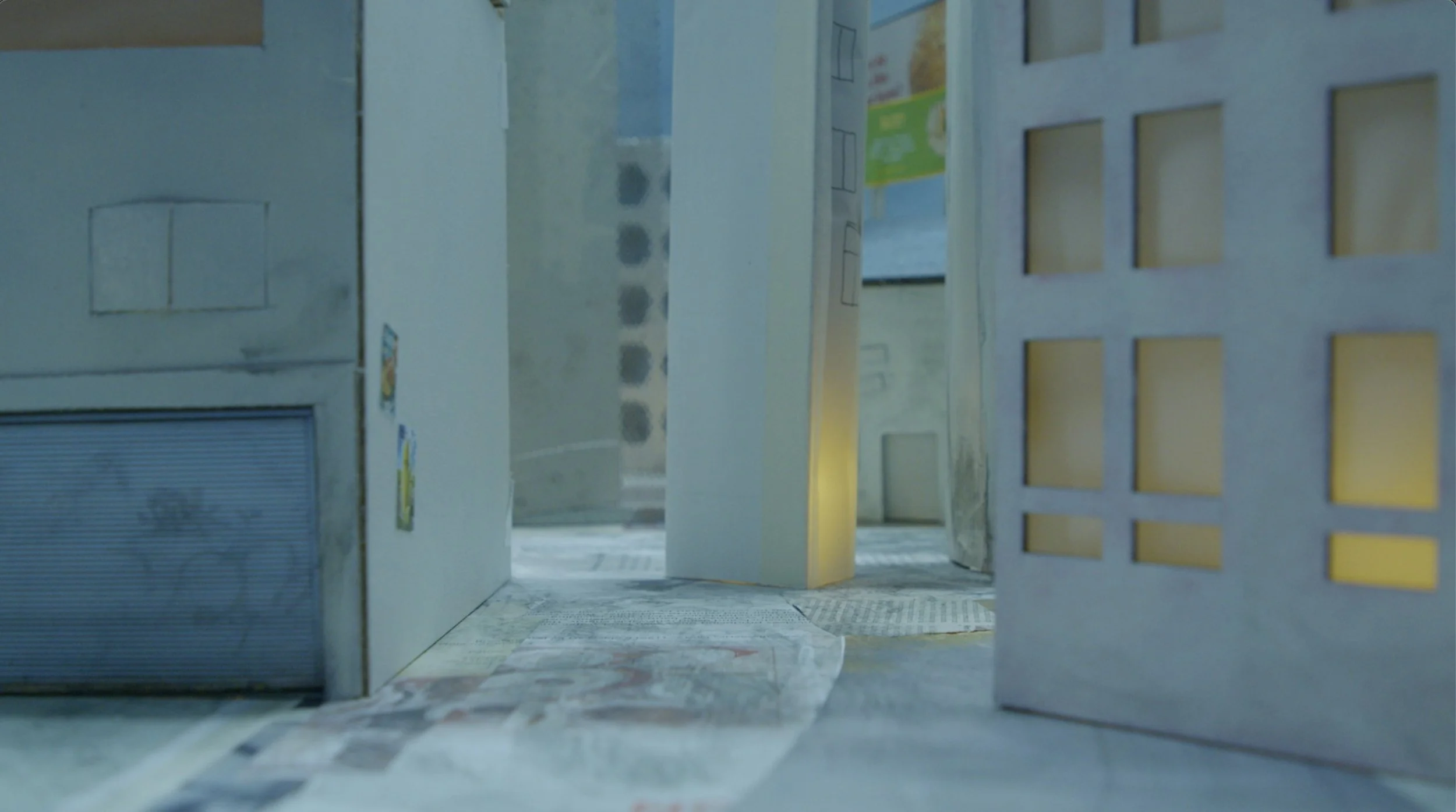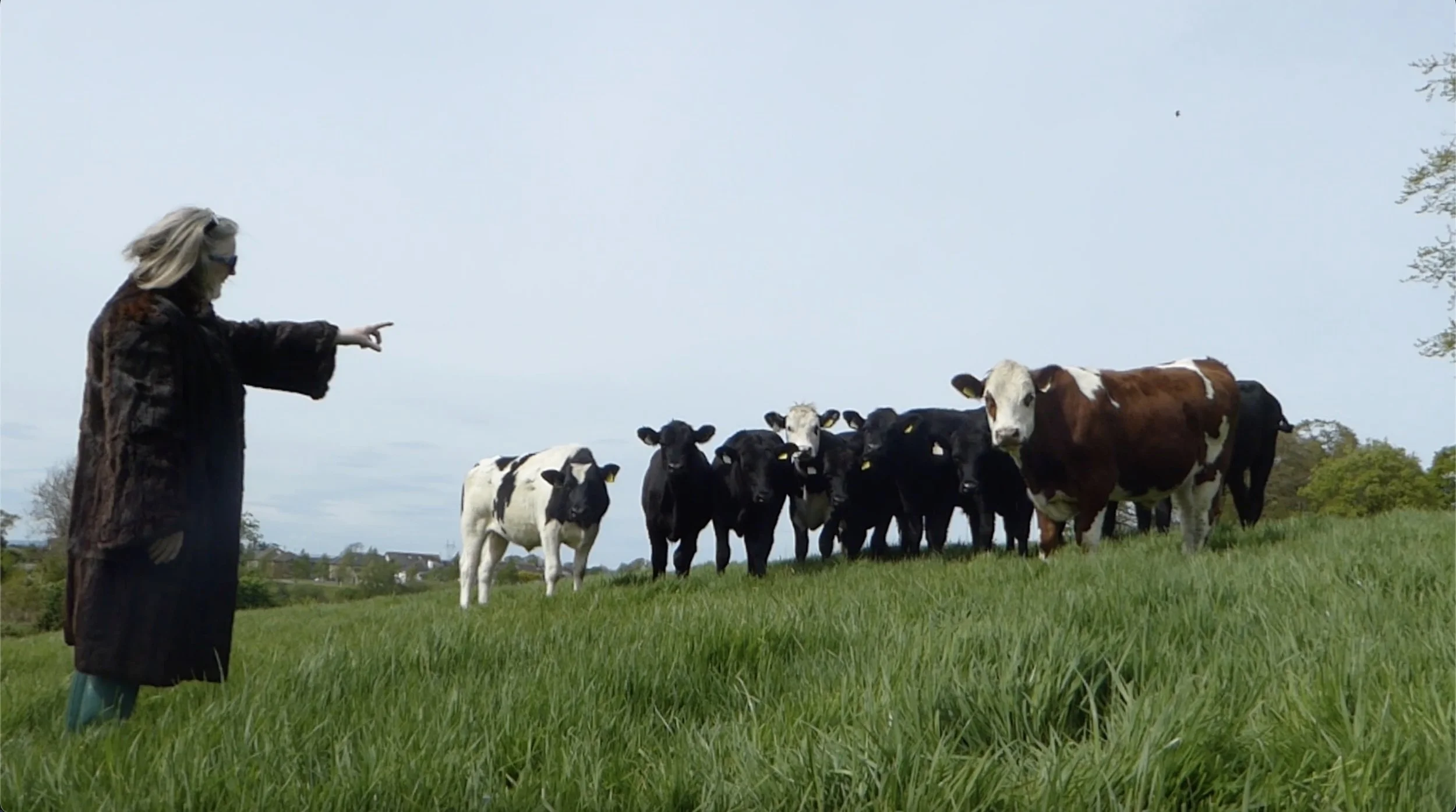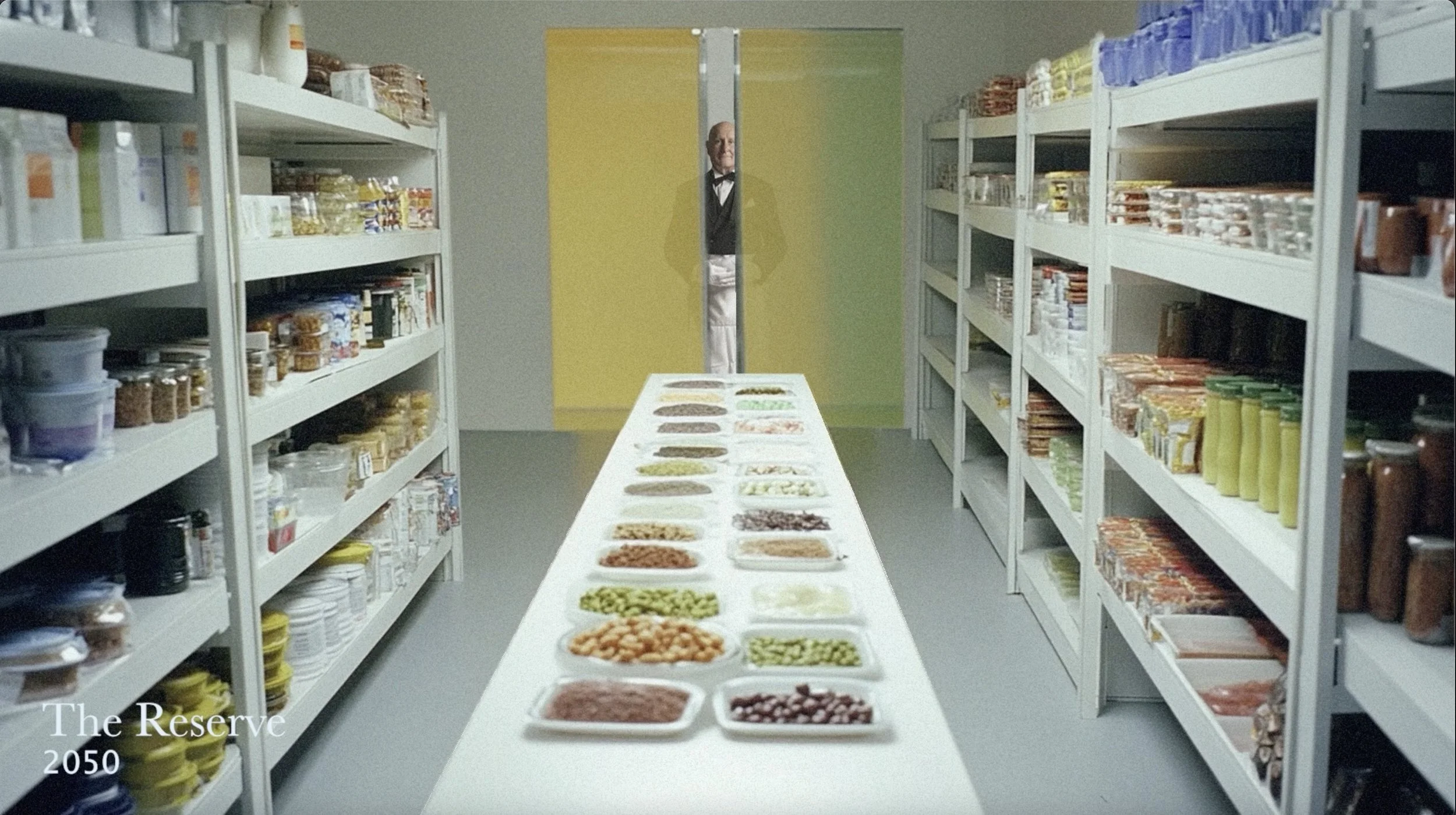
PORTIONED
by Juliette Porisse
This study explores the global food system, focusing on ultra-processed foods. It examines their impact on agriculture, microbiome health, societal structures, and ethical dilemmas around food access and overconsumption in a changing climate.
02. Engineered Ecologies: Investigating human-made environments and their implications on future societies.
Film Logline: Set in 2050, in a world where the government controls the last fertile land depleted from climate change. Households receive metal lunchboxes to portion out their rations of fresh food, meanwhile the wealthy continue to indulge freely, simply because they can afford to.
Project Description:
This film explores a future shaped by climate collapse and government control, where fresh food has become rare, valuable, and tightly managed. Set in the year 2050, it imagines a world where the soil can no longer grow anything, farming no longer exists, and people rely on unlimited ultra-processed, lab-made food to survive. Fresh food is handed out once a week in small amounts, through strict state-run markets guarded by armed officers.
This project looks at how space, power, and food are connected. The city is divided: tall, corporate towers covered in ads stand next to empty markets and narrow streets, reminders of what was lost. Kitchens are gone. Cooking is a forgotten act. People eat alone, using metal lunch boxes instead of sharing meals.
The film confronts fears about climate change, food systems, and inequality. It tackles more specifically the health effects of ultra-processed foods, and how our society is drowning in overconsumption. It also draws from the feeling of nostalgia, how technology and progress, while often helpful, are slowly making us lose touch with culture, and the simple act of cooking fresh real food .
And if this future seems possible, what does it say about where we are now?
SHORT FILM - Panasonic Lumix, Blackmagic 4K, Adobe Premiere Pro, Adobe Photoshop, Adobe After Effects, Midjourney

